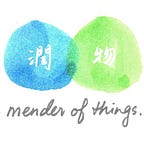刻在你心底的名字 Your Name Engraved Herein
“Someone, I tell you, in another time will remember us.”
- Sappho, Fragments, on the Muses
Your Name Engraved Herein (2020) tells the story of high-schoolers A-Han and Birdy in 1980’s Taiwan. Martial law has just been lifted, signifying a new era for Taiwan, yet in many ways, society’s values have remained unchanged. A-Han finds himself growing more and more attracted to his best friend, Birdy, but finds himself faced with the violent threat of homophobia still looming in society.
Like many other LGBTQ+ films in history, Herein is melodramatic in its portrayal of moments of affection between its main characters. It does a successful job depicting both the pleasure and pain, particularly the latter, of growing up in an age where love between people of the same sex is shunned and punished. One part of the film that has been widely discussed, however, is its ending. In present times, A-Han reunites with Birdy, who has since been through a failed heterosexual marriage and admits that he once loved A-Han deeply. Despite so, the two do not end up together. It’s not a happy ending, nor does it provide full closure. Herein has been criticized for its failure to depict Taiwan’s current progressiveness and its reluctance to show more joyful moments between A-Han and Birdy.
Yet perhaps this torturous pain is exactly what Herein seeks to induce in its audience. A-Han and Birdy’s experiences are not unique to them; they experience heartbreak, guilt, and shame due to their affection for each other, just like many other LGBTQ+ individuals in the past. A purpose of art is to imagine a better world, but for a retrospective film focusing on a social issue such as Herein, would it not be more appropriate to acknowledge the cruelty of the past without sugar-coating it? Indeed, society has become more progressive, Taiwan in particular having legalized same-sex marriage, but for those like A-Han and Birdy, such victories have come too late. Harm has already been done — regardless of how close they are as teenagers, all they can do upon reunion thirty years later is merely smile at each other and talk about what could have been. Giving A-Han and Birdy a happy ending would have been more satisfying and comfortable from our point of view as individuals living in the 21st century, but doing so would be a failure to acknowledge the difficulty LGBTQ+ individuals had to go through in the past. Romanticizing gay romance without acknowledging the sacrifices people had to made because of it, which many LGBTQ+ films have done inadvertently, may be disrespectful to history.
Rather than serving as a story that prompts people to reassess their thoughts about homosexuality, Herein is more of a tribute to those who have suffered in a time when society was less accepting, telling them that they matter and are remembered. Surely to those who have similar experiences as A-Han and Birdy, their bittersweet reunion is as comforting as it is cathartic, as it is an acknowledgement of their complicated pasts as LGBTQ+ individuals and how rarely any happy endings ever came out of them realistically speaking. This is perhaps one purpose of art: to recognize others’ experiences, especially those that we may not be familiar with. It encourages us to confront and understand history, especially its more painful parts, through engaging in the experiences, be they fictional or not, of characters who lived at that time. In doing so, we remember the stories from those in the past, promising them that we will work towards a better future, together as a society.
The author of this article, Florence Lo, is a student of The University of Hong Kong.
